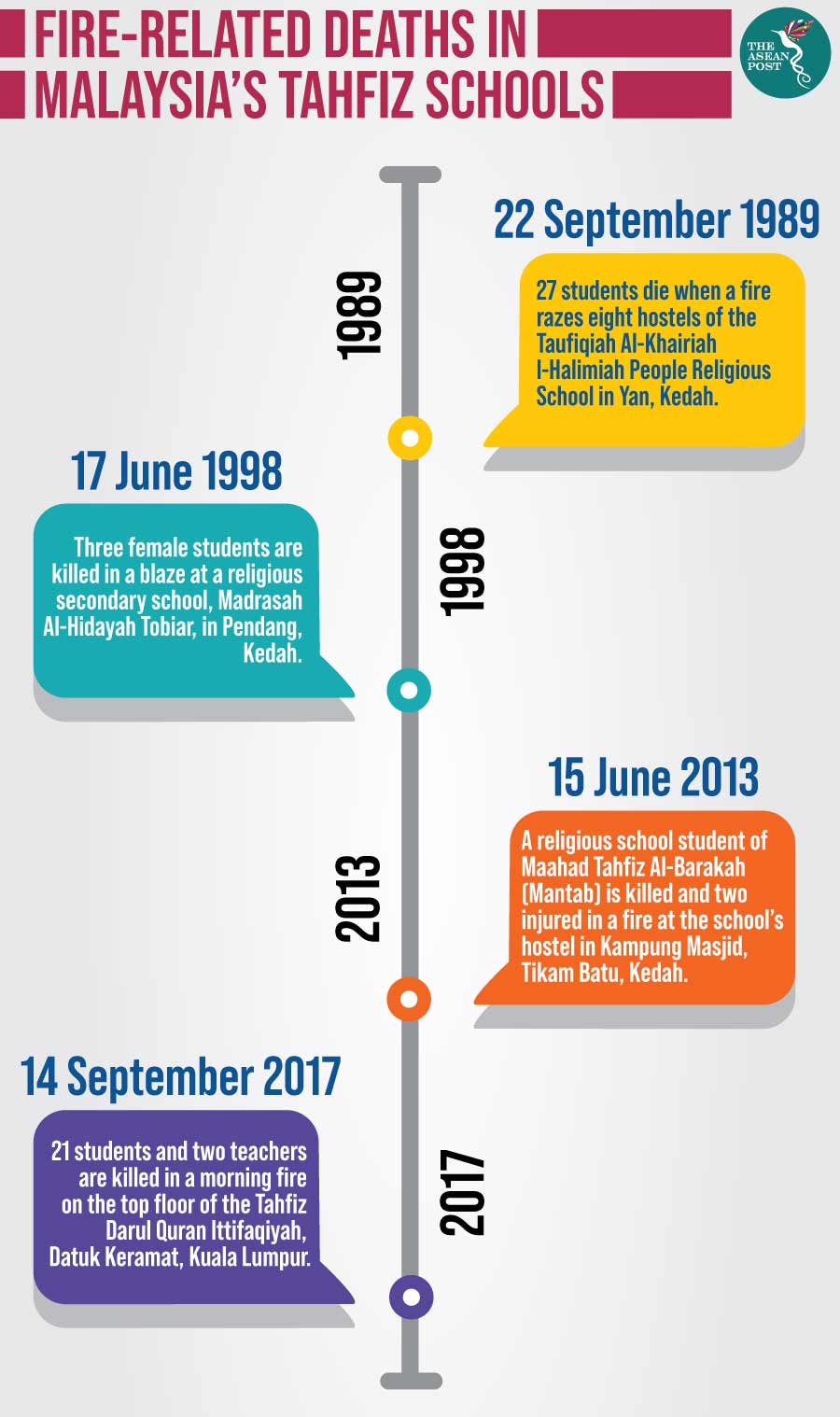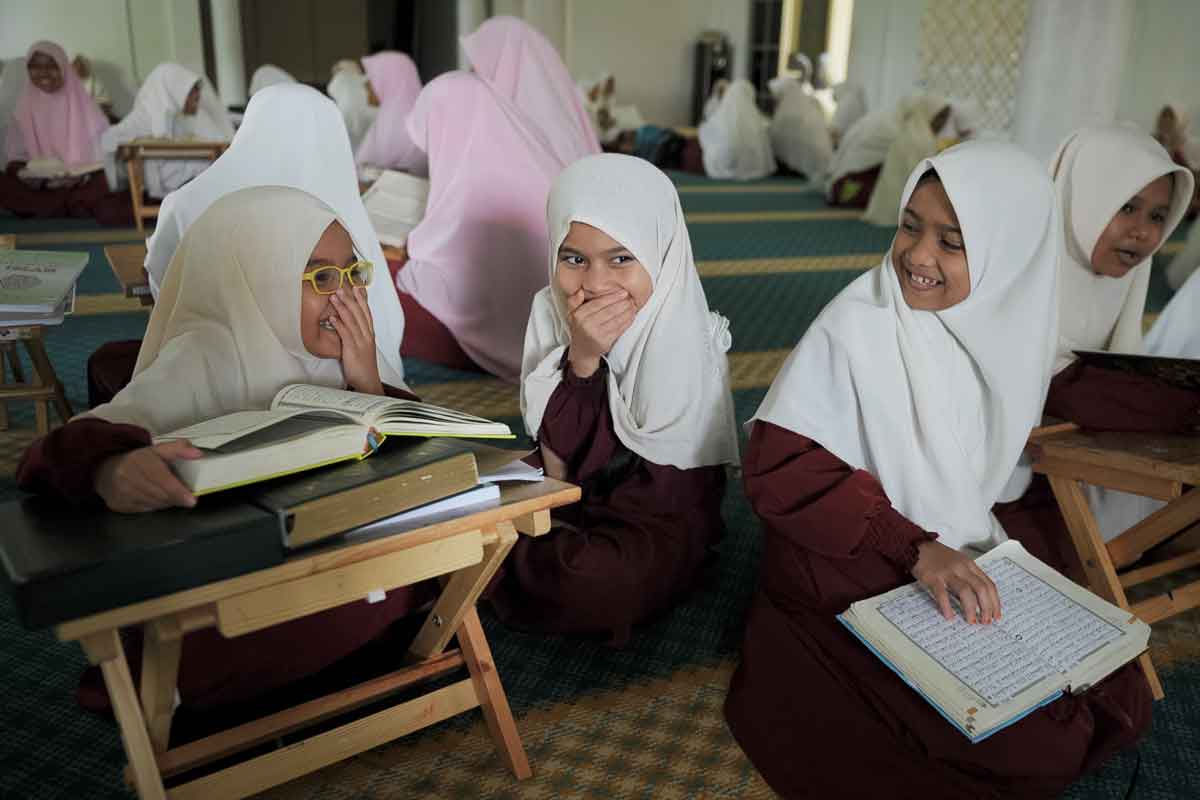A tahfiz school (religious Muslim school) in Kuching, the capital of Sarawak, a state in East Malaysia received heavy criticism on social media recently regarding a purported parental consent form listing “absurd” punishment of pupils enrolled there. The consent form asked parents to agree to the tahfiz school taking disciplinary action which included 60 strokes of the cane, shaving the students’ heads bald, pouring excrement over the students, and standing under the searing sun after Zohor (12.42 pm) up till Asar (3.56 pm). Zohor and Asar are two out of Islam’s five obligatory daily prayers.
The form also allegedly noted that those who refused to continue their religious studies would not be given school leaving certificates. Parents were also required to send their children to the school even if they (the children) refused to continue with their religious studies.
The form came to light after it was posted on Twitter by a netizen who urged Malaysia’s Education Minister Maszlee Malik to investigate the matter. The Sarawak Islamic Religious Department (JAIS) had told a local news portal that it was seeking an explanation from the headmaster of the tahfiz school concerning the purported parental consent form.
On 28 August, Maszlee reportedly said that no unreasonable punishment was imposed on students under the Ministry of Education (MOE).
“Tahfiz schools do not come under the MOE. Under the MOE, there is no such punishment because we follow the law. We have advised the state government monitoring tahfiz schools to do something, about it,” he said.
Maszlee also said on his Facebook page that he was personally concerned about the spread of photos of the forms of punishment that would be imposed on students.
“At the ministry level, we recognise that the tahfiz institution is under the jurisdiction of the Sarawak state government, but these forms of punishment are inhumane and undermine the dignity of the country’s education system. At the same time, I believe, JAIS has taken appropriate action to resolve this problem,” he added.
Over the years, several NGOs in the country have called for it to be compulsory for tahfiz schools to be registered under the education ministry. One such occasion was following an incident involving the death of 11-year-old tahfiz student Mohamad Thaqif Amin Mohd Gaddafi, after alleged abuse at the hands of his school assistant warden in Kota Tinggi, a town in the southern state of Johor in Malaysia.

In June 2017, Parent Action Group for Education (PAGE) head Noor Azimah Rahim was quoted by Malaysian media as saying that ideally, anything related to education should be placed under the education ministry.
“The ministry must be able to play some kind of supervisory role and monitor the types of education available in the country. I’m not saying the ministry should impose anything in terms of the schools’ curriculum or even teaching, but it must play a ‘big brother’ role, such as the central bank’s supervision of banks,” she said.
Mohamad Thaqif’s death is just one example NGOs have used to call on tahfiz schools to be put under the federal government’s purview. There are numerous other reasons, including a fire that broke out at Tahfiz Darul Quran Ittifaqiyah, Datuk Keramat, Kuala Lumpur in September 2017 which killed 21 students and two teachers.
Shura
As alluded to earlier, Malaysia’s tahfiz school system is under the purview of the state government. Proposals, calls and even attempts to place tahfiz schools under the federal government have not been successful and have often been met with fierce criticism from some quarters who feel that the federal government would be infringing on the powers of the state. Considering the fact that it is the Sultan of each state and Malaysia’s Agong (king) who are ultimately in charge of religious affairs in the country, the matter could get messy.
Nevertheless, numerous cases involving everything from fires to allegations of abuse, and now this purported parental consent form highlights the importance of placing tahfiz schools in the country under a magnifying glass. The religion and traditions of Islam may present its own solution to the matter.
Shura (consultation) is an Islamic principle that emphasises the importance of management through teamwork. It consists of meeting or consultation in accordance to the Islamic approach and by following the guidelines of the Quran and Sunnah (actions and sayings of the Prophet Muhammad).
While tahfiz schools in Malaysia are handled by the Islamic authorities of each state, and the idea of infringement into that jurisdiction by the federal government is frowned upon, there is little reason why these Islamic authorities cannot come together to look at the issues that may be affecting some tahfiz schools.
Certainly, there are times when each state may disagree on certain matters pertaining to the interpretation of the religion, but consensus must come with the first step: meeting to discuss.
Tahfiz schools represent an important symbol of Islamic presence in Malaysia and their prosperity, in turn, represents the prosperity of the religion. This should be a matter worthy of discussion by those who have taken up the mantle to champion Islam in Malaysia. It is hoped that this will happen before another tahfiz fire takes another Muslim life.
Related articles:
